Related Research Articles

Jean-Jacques Rousseau was a Genevan philosopher (philosophe), writer, and composer. His political philosophy influenced the progress of the Age of Enlightenment throughout Europe, as well as aspects of the French Revolution and the development of modern political, economic, and educational thought.

Mostly Harmless is a 1992 novel by Douglas Adams and the fifth book in the Hitchhiker's Guide to the Galaxy series. It is described on the cover of the first edition as "The fifth book in the increasingly inaccurately named Hitchhikers Trilogy". It was the last Hitchhiker's book written by Adams and his final book released in his lifetime.
Positive liberty is the possession of the power and resources to act in the context of the structural limitations of the broader society which impacts a person's ability to act, as opposed to negative liberty, which is freedom from external restraint on one's actions.
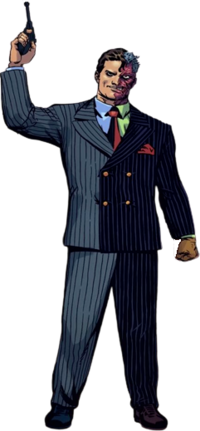
Two-Face is a supervillain appearing in American comic books published by DC Comics. The character was created by Bob Kane, and first appeared in Detective Comics #66. He has become one of the superhero Batman's most enduring enemies belonging to the collective of adversaries that make up his rogues gallery.
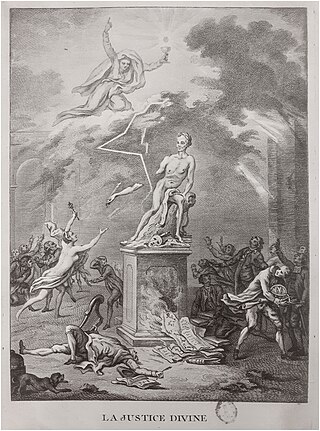
The Counter-Enlightenment refers to a loose collection of intellectual stances that arose during the European Enlightenment in opposition to its mainstream attitudes and ideals. The Counter-Enlightenment is generally seen to have continued from the 18th century into the early 19th century, especially with the rise of Romanticism. Its thinkers did not necessarily agree to a set of counter-doctrines but instead each challenged specific elements of Enlightenment thinking, such as the belief in progress, the rationality of all humans, liberal democracy, and the increasing secularisation of society.

Henri Julien Félix Rousseau was a French post-impressionist painter in the Naïve or Primitive manner. He was also known as Le Douanier, a humorous description of his occupation as a toll and tax collector. He started painting seriously in his early forties; by age 49, he retired from his job to work on his art full-time.

Emile, or On Education is a treatise on the nature of education and on the nature of man written by Jean-Jacques Rousseau, who considered it to be the "best and most important" of all his writings. Due to a section of the book entitled "Profession of Faith of the Savoyard Vicar", Emile was banned in Paris and Geneva and was publicly burned in 1762, the year of its first publication. It was forbidden by the Church being listed on the Index Librorum Prohibitorum. During the French Revolution, Emile served as the inspiration for what became a new national system of education.

The Social Contract, originally published as On the Social Contract; or, Principles of Political Right, is a 1762 French-language book by the Genevan philosopher Jean-Jacques Rousseau. The book theorizes about how to establish legitimate authority in a political community, that is, one compatible with individual freedom, in the face of the problems of commercial society, which Rousseau had already identified in his Discourse on Inequality (1755).
Events from the year 1845 in art.

Nicholas D'Agosto is an American actor, best known for featuring in Final Destination 5, Heroes and The Office. He starred in the Showtime series Masters of Sex and the Fox series Gotham.
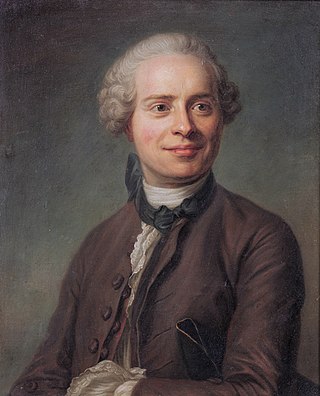
Letter to M. d'Alembert on Spectacles is a 1758 essay written by Jean-Jacques Rousseau in opposition to an article published in the Encyclopédie by Jean d'Alembert, that proposed the establishment of a theatre in Geneva. More generally, it is a critical analysis of the effects of culture on morals, that clarifies the links between politics and social life. Rousseau relates the issue of a theatre in Geneva to the broader social context, warning of the potential the theatre has to corrupt the morality in society.
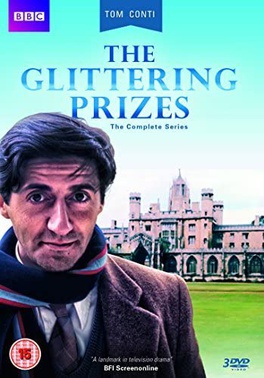
The Glittering Prizes is a British television drama by Frederic Raphael about the changing lives of a group of Cambridge students, starting in 1952 and following them through to middle age in the 1970s. It was first broadcast on BBC2 in January 1976 and later adapted into a novel of the same name.
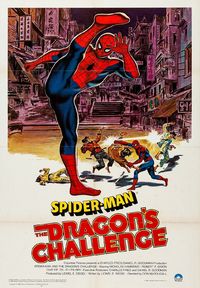
Spider-Man: The Dragon's Challenge is a 1981 American superhero film that had a theatrical release abroad, a composite of the 1979 two-parter episode "The Chinese Web" of the contemporary television series The Amazing Spider-Man, released on 9 May 1981. It was directed by Don McDougall, written by Lionel E. Siegel and stars Nicholas Hammond as the titular character, Rosalind Chao, Robert F. Simon, Benson Fong, and Ellen Bry. It is the sequel to Spider-Man (1977) and Spider-Man Strikes Back (1978).

Eugene Leon Caton was an American college football player and coach as well as an oil salesman.
"Harvey Dent" is the ninth episode of the television series Gotham. It premiered on FOX on November 17, 2014, and was written by Ken Woodruff, and directed by Karen Gaviola. In this episode, trying to solve the Waynes' murder, Gordon allies with ADA Harvey Dent while also investigating corruption in Gotham.

The Age of Louis XIV is a historical work by the French historian, philosopher, and writer Voltaire, first published in 1751. Through it, the French 17th century became identified with Louis XIV of France, who reigned from 1643 to 1715.
Maurice Cranston wrote a three-volume biography of the philosopher Jean-Jacques Rousseau, published between 1983 and 1998.

Lone Star Moonlight is a 1946 American Western film directed by Ray Nazarro and written by Louise Rousseau. The film stars Ken Curtis, Joan Barton, Guy Kibbee, Robert Kellard, Claudia Drake and Arthur Loft. It was released on December 12, 1946 by Columbia Pictures.

The character Two-Face was created by Bob Kane and first appeared in Detective Comics #66. However, he did not appear outside comics until half a century later in Batman: The Animated Series. Two-Face has since been substantially adapted from the comics into various forms of media, such as feature films, television series and video games. Two-Face has been voiced by Richard Moll in the DC Animated Universe, Troy Baker in the Batman: Arkham series, Billy Dee Williams in The Lego Batman Movie, and William Shatner in Batman vs. Two-Face. His live-action portrayals include Billy Dee Williams in Batman (1989), Tommy Lee Jones in Batman Forever, Aaron Eckhart in The Dark Knight, and Nicholas D'Agosto in the television series Gotham. In 2009, Two-Face was ranked #12 on IGN's list of the Top 100 Comic Book Villains of All Time.
References
- ↑ "About". Hastings Battleaxe.
- ↑ Clarke, James (22 October 2006). "Review of Rousseau". NDPR. ISSN 1538-1617.
- ↑ "Nicholas Dent". LibraryThing.com.